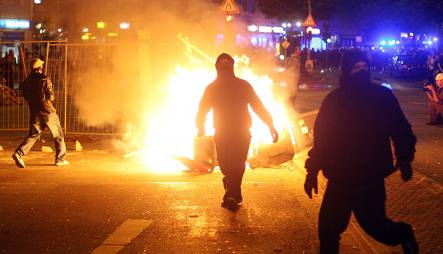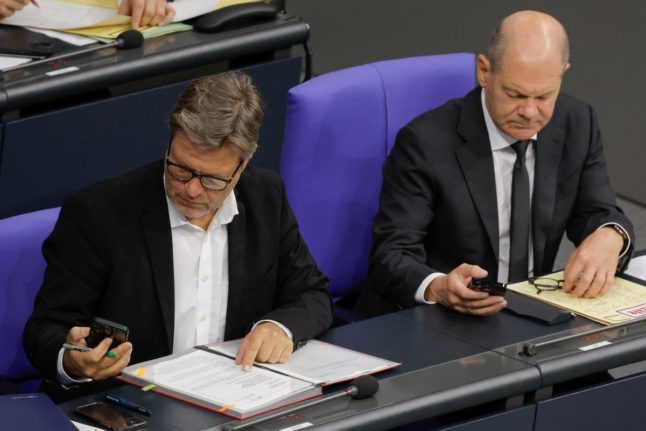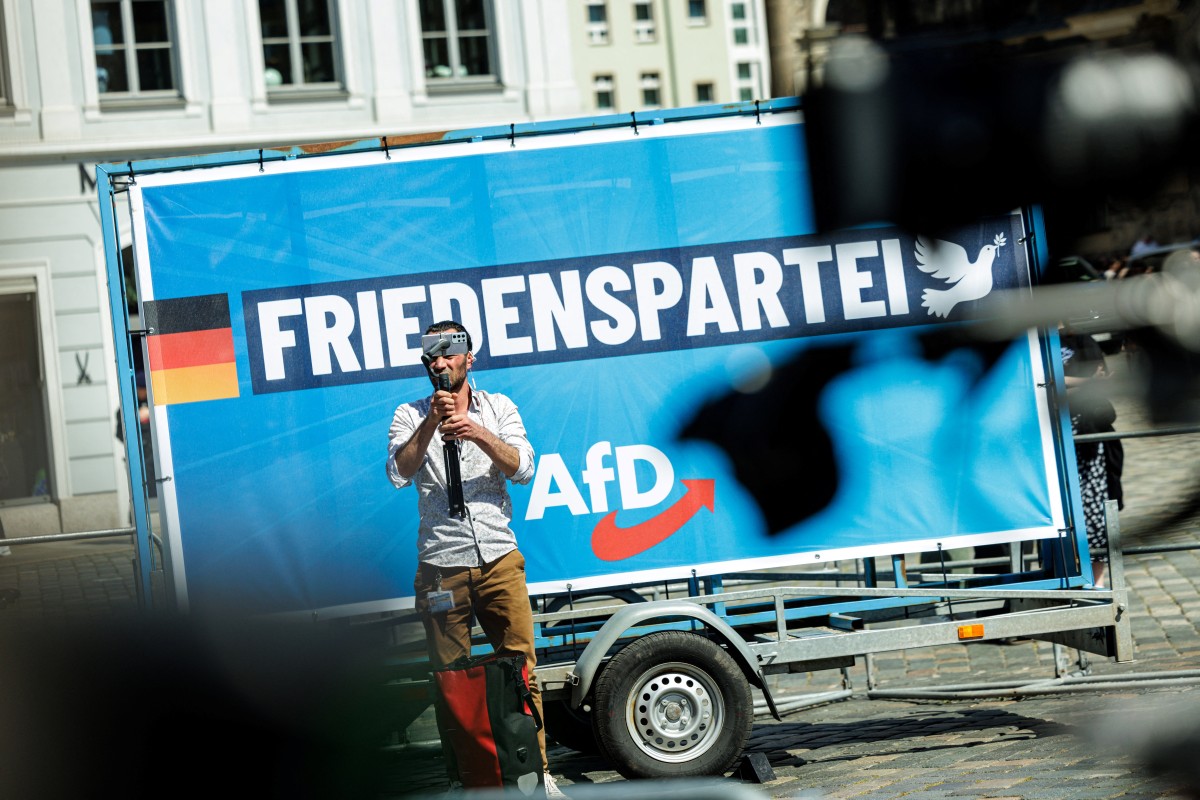Over 10,000 visitors visited the Schanzenfest street fair, but once it turned dark, over 1,000 young, masked anarchists came out to do battle, police said. The rioters threw bottles, stones and fireworks at police.
“The fusillade was extremely massive,” police spokesman Ralf Meyer told the daily Hamburger Abendblatt, who said the anarchists were more aggressive than in past years. For years, the Schanzenfest has often concluded with clashes between police and the left-wing, anti-fascist Autonomen, or “Black Bloc.”
Over 1,800 police officers were on duty at the event and deployed water cannons and riot sticks against the rioters. Many of the rioters were injured, though no specific numbers were available.
One police vehicle was torched by rioters, who also ignited trash cans and street barriers. Two of the arrested rioters traveled to Hamburg from Berlin to take part. They were taken into custody after pulling out a backpack that contained a timing device that looked like it could set off explosives.
Police around Germany have warned in recent months that the ultra-left-wing anarchist scene appears to be becoming more violent. On June 21, thousands of anarchists tried to forcibly occupy Berlin’s Tempelhof airport. Police said rioters at this year’s annual May 1 riots in Berlin used Molotov cocktails against police, an escalation from recent years.




 Please whitelist us to continue reading.
Please whitelist us to continue reading.
Member comments